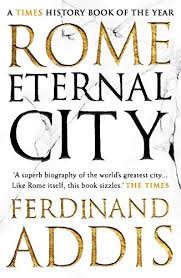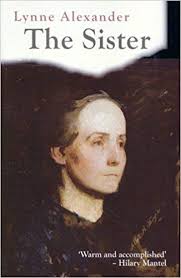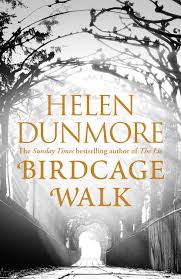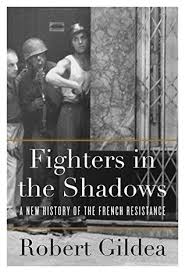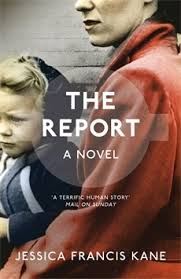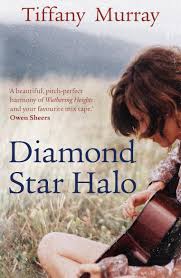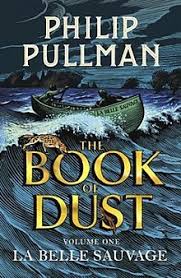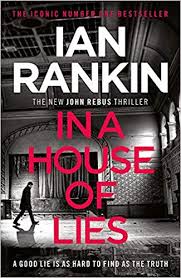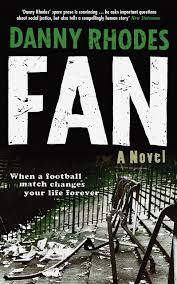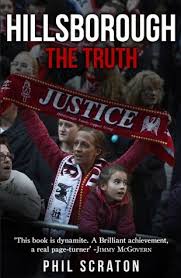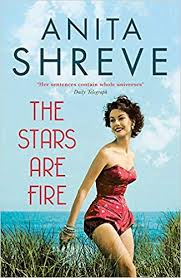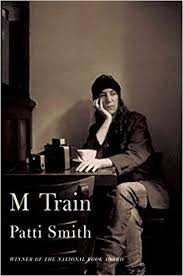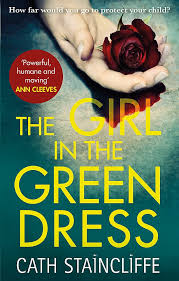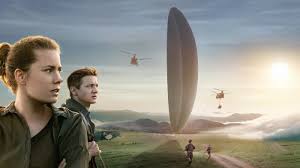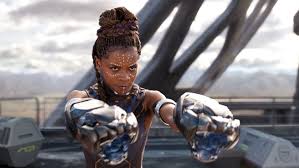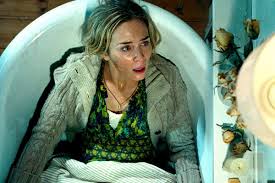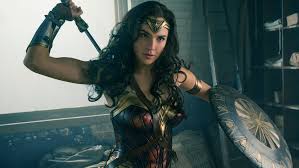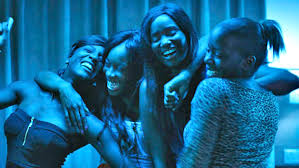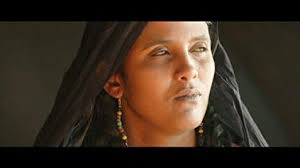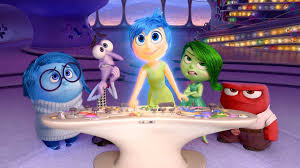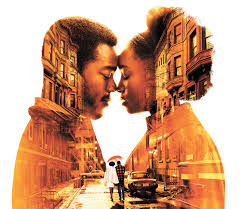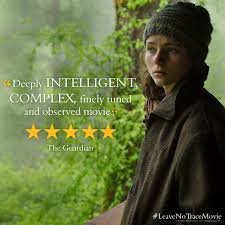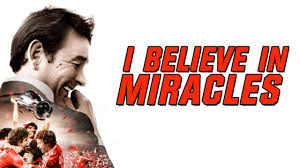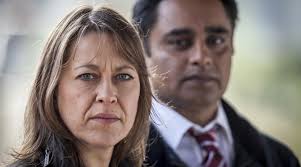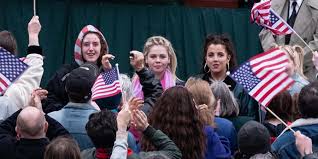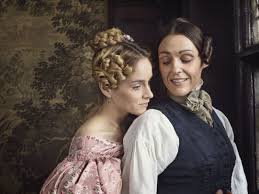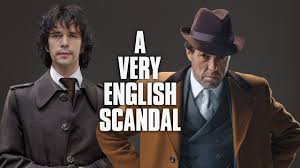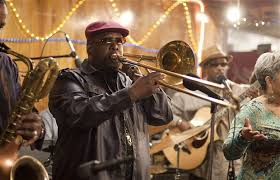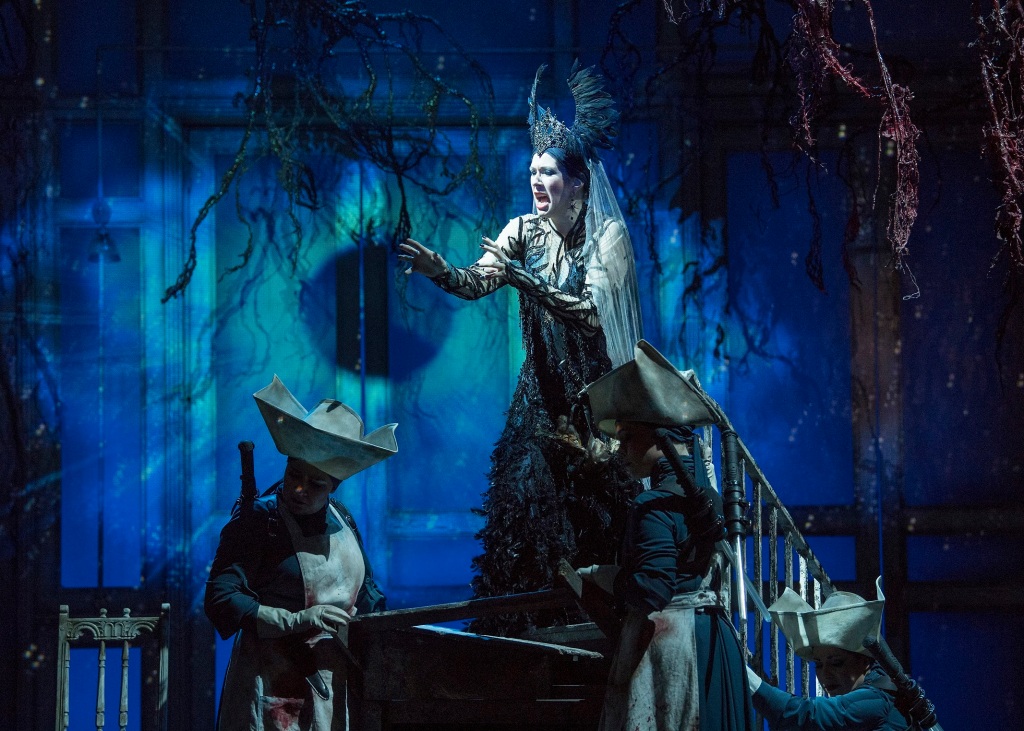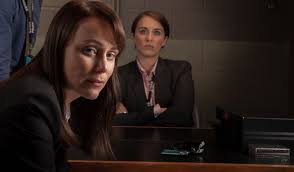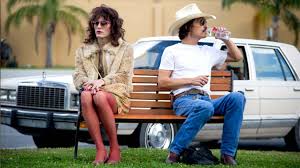Posts Tagged Opera
2010-2019 – the best bits… and some of the other bits
Posted by cathannabel in Events, Film, Literature, Music, Personal, Television on December 19, 2019
I honestly hadn’t thought about it being the end of a decade until I saw the first few ‘best of’ lists appearing.
On a personal level, it’s been quite momentous. We both retired, midway through the decade, a decision which we haven’t regretted for a nano-second. I finished my (second) undergrad degree before I left work, and then went straight on to study for a PhD, which I hope to complete early in the next decade. Each of our children graduated twice (four different Universities, three different cities) and found permanent, rewarding employment.
I lost a good friend and colleague to cancer and helped to set up and then chair a charity as his legacy, raising around £30k since 2013 for cancer charities, through a fabulous fundraising event, the 24 Hour Inspire, and other ventures.
I started this blog in January 2012, and whilst I’ve had periods of writer’s block this year it’s given me a way of being creative, having spent most of my life denying that I am or could be. I was also offered the chance to go to the opera for free with a friend, and write reviews of the productions, which has been an absolute delight.
We put lots of things on hold for a while as my mother in law’s dementia worsened, and her care needs became urgent. She died last Christmas. My brother was diagnosed with terminal cancer in 2018 and the chemo he’s been on is no longer working. We go into the New Year with heavy hearts.
Politically it’s been a nightmarish decade. The Tories back in power, first in coalition, then in their own right, albeit for a while as a minority government. The EU Referendum and the government’s complete inability to approach the negotiations in good faith and with understanding and intelligence. Obama replaced in the White House by someone so utterly unfit for any kind of high office that I still wonder whether we slipped into some parallel universe at about the halfway point of the decade, after which nothing made any kind of sense.
Should have realised, when I woke one morning in early January 2016 to learn that Bowie had left us. Should have known it was a portent.
So since looking forward is a mug’s game at present, I’ll look back, to the books, films and TV programmes that have sustained me during the last ten years.
Books of the Decade
Some of these titles feature in my already published Books of the Year and Books of the Century lists, as one might expect. I’ll indicate those that do, or that are reviewed in my 60 Books challenge series, so as not to repeat myself too much (and have time to also do the full panoply of decade and year lists that I am somehow compelled to do).
Ben Aaronovitch – Moon over Soho (Books of the Century)
Ferdinand Addis – Rome: The Eternal City was a birthday gift from the Roman branch of our family, following a recent visit to the city, which had made me realise just how fragmented and unreliable my sense of its history was. A hotch-potch of Shakespeare, the New Testament, Robert Graves and Robert Harris, I really needed to get a grip on it all. Addis’s tome is just the thing. It’s very entertainingly written, it takes key events and explains how they came to pass and what followed, and it takes us from Romulus & Remus to Federico Fellini.
Chimamanda Adichie – Americanah. Her Half of a Yellow Sun is one of the top three books of the century (according to me). Adichie’s protagonist here goes off to University in the States, and we follow her struggles to acclimatise and to understand what race means in America, as well as her feelings for her lover back in Lagos. It’s often very funny, and always very sharp and perceptive. The Guardian said that ‘It is ostensibly a love story – the tale of childhood sweethearts at school in Nigeria whose lives take different paths when they seek their fortunes in America and England – but it is also a brilliant dissection of modern attitudes to race, spanning three continents and touching on issues of identity, loss and loneliness.’
Viv Albertine – Clothes, Clothes, Clothes. Music, Music, Music. Boys, Boys, Boys (Books of the Century)
Naomi Alderman – The Power (Books of the Century)
Lynne Alexander – The Sister illuminates a life lived in the shadows: Alice James was sister to the more famous Henry and William, prevented by ill health and the constraints of Victorian society from expressing her own creativity. Alexander doesn’t hammer this message home simplistically but brings Alice to sympathetic life. ‘A furious volcano of thoughts and desires trapped within a carapace of pain, Alice is a feminist cipher but, more movingly, a beautifully drawn and memorable individual, brave, vulnerable and fiercely intelligent.’ (The Guardian)
Darran Anderson – Imaginary Cities is an exuberant and wildly eclectic tour of cities in Western civilisation drawing on books, films, architecture, myth, visual arts. Totally my cup of tea. Described as ‘an exhaustive, engaging book’ which generates ‘sheer joy for the curious reader’. It certainly did for this curious reader.
Anne Applebaum – Iron Curtain: The Crushing of Eastern Europe 1944-56 is a fascinating study of Poland, the GDR and Hungary after the end of the Second World War. The Telegraph said that she takes ‘a dense and complex subject, replete with communist acronyms and impenetrable jargon, and make it not only informative but enjoyable – and even occasionally witty. In that respect alone, it is a true masterpiece’. (Books of the Year)
Kate Atkinson – Life after Life (Books of the Century)
Margaret Atwood – The Testaments is the long-awaited sequel to The Handmaid’s Tale. It does take the action forward – we get to see some of what happened after that book’s final page, but perhaps more significantly, we see Gilead from perspectives other than that of June/Offred, and so we understand more about how Gilead works, and about, in particular the role of the Aunts. It’s completely compelling, and very disturbing. (Books of the Year)
Julian Barnes – The Levels of Life (Books of the Century)
Linda Buckley-Archer – The Many Lives of John Stone. Buckley-Archer began her literary career with the YA Timequake trilogy. This is beautifully written, interweaving a vivid historical narrative with the present day. There’s no time travel, or supernatural/paranormal elements – it just uses a hypothetical genetic characteristic as the basis for the plot. It’s engaging, gripping and ultimately very moving.
James Lee Burke – Robicheaux (Books of the Century)
Jane Casey – Cruel Acts (Books of the Year, and Century)
Jonathan Coe – Middle England. I picked The Rotter’s Club for my books of the century, and this is the third part of that trilogy. This made me laugh a lot. Made me weep a bit. Reminded me of music I love (Hatfield & the North, Vaughan Williams) and of lyrics that always move me: Billy Bragg’s ‘Between the Wars’. (Not mentioned in Coe’s book, but I kept on thinking of the line ‘Sweet moderation, heart of our nation’). It’s rueful and wistful and, I think, hopeful… (Books of the Year)
Suzanne Collins – Mockingjay is the final part of The Hunger Games trilogy. Another series aimed at a young adult readership, this one is pretty dark (not that YA reading should be sugar-coated or cosy, it should challenge and disrupt if it’s doing its job). Vivid and exciting, with a splendid hero in Katniss Everdene, and resists too neat an ending – after so much tragedy and trauma, that would have jarred horribly.
Stevie Davies – Awakening (Books of the Century)
Edmund de Waal – Hare with the Amber Eyes (Books of the Century)
Emma Donoghue – Room (Books of the Century)
Helen Dunmore – Birdcage Walk. Sadly the last novel from Dunmore, who died of cancer in 2018. I picked The Siege as one of my Books of the Century, and read The Betrayal as part of my 60 books challenge – her novels are very varied but always beautifully and powerfully written. The Guardian describes her writing as ‘hazardously human’. It’s particularly poignant to note that the fictional Julia Fawkes ‘lies buried with the inscription “Her words remain our inheritance.” Julia may have disappeared from the record, but Dunmore’s words remain.
Sue Eckstein – Interpreters (Books of the Century)
Reni Eddo-Lodge – Why I’m no longer talking to White People about Race (Books of the Century)
Esi Edugyan – Half-Blood Blues (Books of the Century)
Elif Shafak – Three Daughters of Eve (60 Books)
Lara Feigel – The Bitter Taste of Victory (Books of the Century)
Will Ferguson – 419 (Books of the Century)
Gillian Flynn – Gone Girl (Books of the Century)
Karen Joy Fowler – We are all Completely Beside Ourselves is particularly difficult to write about without revealing a vital twist, so I will avoid any discussion of the plot. Read it anyway, just avoid the reviews (so no link to the Guardian, which called It an ‘achingly funny, deeply serious heart-breaker … a moral comedy to shout from the rooftops’.) (Books of the Year)
Tana French – Broken Harbour (Books of the Year and Century)
Esther Freud – Mr Mac and Me reminded me of Helen Dunmore’s Zennor in Darkness. A writer/artist (D H Lawrence for Dunmore, Charles Rennie Mackintosh for Freud) finds themselves in a rural community at the start of the First World War, and is regarded with suspicion by the locals due to their unconventional behaviour). Mackintosh is seen through the eyes of a fourteen year old boy, intoxicated by the glimpses of a wider world, of art and beauty, that Mackintosh brings.
Jo Furniss – All the Little Children (60 Books)
Robert Galbraith – The Cuckoo’s Calling (Books of the Century)
Patrick Gale – Notes from an Exhibition (Books of the Century)
Alan Garner – Boneland (Books of the Century)
Nicci Gerrard – What Dementia Teaches us about Love (Books of the Century)
Valentina Giambanco – The Gift of Darkness (Books of the Century)
Elizabeth Gilbert – The Signature of all Things. I wouldn’t have expected to enjoy Elizabeth Gilbert’s writing, having a deep-rooted suspicion of the whole Eat, Pray, Love thing. But I really did. Gilbert’s fictional protagonist, Alma Whittaker, is brilliant, lonely, not pretty. She’s a scientist, a naturalist, in the wrong era (she’s born in 1800) to have any chance of fulfilling her ambitions, or her desires. She’s remarkable, utterly believable, her openness and imagination endearing and fascinating. It’s an ambitious novel, that fully succeeds in its ambitions.
Robert Gildea – Fighters in the Shadows: A New History of the French Resistance. Gildea brings out of the shadows the Resistance that was marginalised for decades – women, Communists, foreigners. It’s much more complicated than the myth that de Gaulle propagated at the Liberation, and more interesting.
Lesley Glaister – The Squeeze (Books of the Century)
David Grann – Killers of the Flower Moon (Books of the Century)
Jarlath Gregory – The Organised Criminal (60 Books)
Elly Griffiths – The Stone Circle (Books of the Year and Century)
Thomas Harding – The House by the Lake (Books of the Year and Century)
Jane Harper – The Lost Man (Books of the Year and Century)
Robert Harris – An Officer and a Spy (Books of the Century)
John Harvey – Darkness, Darkness – the final part of the series of novels featuring Nottingham detective Charlie Resnick.
Noah Hawley – Before the Fall is an excellent thriller, about truth and lies, fame and reality, from the writer of the TV version of Fargo
Emma Healey – Elizabeth is Missing (Books of the Century)
Sarah Helm – If this is a Woman (Books of the Century)
Sarah Hilary – Never be Broken (Books of the Year and Century)
Susan Hill – The Comforts of Home is the most recent (that I’ve read) of the Simon Serrailler series. (Books of the Year. The Various Haunts of Men was one of my Books of the Century).
Christopher Hitchen – Mortality (Books of the Century)
Andrew Michael Hurley – The Loney (Books of the Century)
Jessica Frances Kane – The Report is absolutely fascinating. At the heart of the novel is a little known wartime tragedy, in which no bombs fell, but 173 civilians died. I had never heard about the Bethnal Green disaster when I came across this book, and it set off many trains of thought.
Philip Kerr – Prague Fatale. Kerr’s series of novels featuring Berlin detective Bernie Gunther blend crime fiction with World War II European history. They span from the immediate pre-war period to the long aftermath of the war, and Bernie has been part of it all. He’s a survivor, who’s done bad things and seen worse ones, but somehow retained his humanity, a dry humour, and at least some of his integrity.
Stephen King – The Institute. King’s latest references a number of his previous novels (Firestarter, The Shining, Carrie…) but does something a bit different with these themes. In a way, he’s setting two version of America against each other: the corporate world of the Institute, ‘the cogs and wheels of bureaucratic evil, run by ‘a bunch of middle-management automatons’, against small-town America (the good and the bad thereof). It’s proper cancel all other activities including meals and sleep till the last page King. (Books of the Year)
Otto Dov Kulka – Landscapes of the Metropolis of Death (Books of the Century)
John le Carre – Pigeon Tunnel (60 Books)
Harper Lee – Go Set a Watchman (Books of the Century)
Laura Lipmann – Sunburn (Books of the Year and Century)
Kenan Malik – Quest for a Moral Compass (Books of the Century)
Hilary Mantel – Bring up the Bodies. We’re still eagerly awaiting the third part of Mantel’s Cromwell trilogy. (Wolf Hall was one of my Books of the Century).
Helen Mathers – Patron Saint of Prostitutes is a fascinating biography of Josephine Butler, the remarkable Victorian campaigner who challenged all of the conventions about how a pious and respectable woman should behave by working with prostitutes, and challenging publicly the way in which they were brutalised and abused in the name of public morals.
Jon McGregor – Reservoir 13 (Books of the Century)
Dervla McTiernan – The Ruin (Books of the Century)
Livi Michael – Succession (Books of the Century)
Denise Mina – The Long Drop (Books of the Century)
Wendy Mitchell – Someone I Used to Know is an account by someone diagnosed with early onset dementia. She’s frank and fearless about explaining how the condition affects her as it progresses, but uses her energies to campaign for awareness and understanding, and for practical support. Her blog is funny, sad and enlightening, and it is so rare and refreshing to hear about dementia from someone who is actually experiencing it.
Caitlin Moran – How to be a Woman (Books of the Century)
Sarah Moss – Bodies of Light (Books of the Year and Century)
Thomas Mullen – Darktown (Books of the Century)
Tiffany Murray – Diamond Star Halo rocks. It’s set on a fictionalised version of the residential recording facility at Rockfield Farm, Murray’s childhood home, itself the locus of much rock music mythology. It’s gloriously funny, but has plenty of heart, and the music is part of every line of the text – I could hear the soundtrack in my head, even the music that was imagined and not real. And I often think of protagonist Halo’s night-time prayer, a litany of rock stars gone forever…
Maggie O’Farrell – The Hand that First Held Mine (Books of the Century)
Chinelo Okparanta – Under the Udala Trees movingly explores the Biafran war, sexuality and love across the ethnic and religious divides, class and status in Nigerian society.
David Olusoga – Black and British (Books of the Century)
Philip Pullman – La Belle Sauvage (The Book of Dust, Book 1). I won’t say too much about this as I don’t want to risk giving any spoilers. But it is sheer delight to be back in this world and to re-experience the sheer power, the subtlety, the glorious imagination of Pullman’s writing.
Ian Rankin – In a House of Lies, the most recent Rebus. He’s retired now, and battling with COPD and the lifestyle changes that has forced on him. Does any of that stop him getting involved in the solving of a crime, and getting under the feet of the cops? Have you met Rebus? (Books of the Year)
Danny Rhodes – Fan is about football and football culture, about supporting Nottingham Forest, and, inexorably, about Hillsborough. It’s powerful and harrowing.
Sally Rooney – Normal People (Books of the Year and Century)
Liz Rosenberg – Indigo Hill (Books of the Year and Century)
Donal Ryan – From a Low and Quiet Sea (Books of the Year and Century)
Philippe Sands – East-West Street (Books of the Century)
Noo Saro-wiwa – Looking for Transwonderland (Books of the Century)
Phil Scraton – Hillsborough: The Truth. When Scraton published this 2016 edition of his authoritative, rigorous, and personal account of the disaster, he would not have imagined the news that broke in December 2019, that Duckenfield had been found not guilty. Again, the families who have endured so much – lies, betrayal, vilification, dismissal – for so long, are in pain, and again, it seems no one will be held accountable for 96 entirely avoidable deaths.
Anne Sebba – Les Parisiennes (Books of the Century)
Taiye Selasi – Ghana Must Go (Books of the Century)
Lynn Shepherd – Tom All-Alone’s (Books of the Century)
Anita Shreve – The Stars are Fire was Shreve’s last book. Her protagonist, Grace, has a life that is limited by societal convention and tight family budgets but she thinks it’s fine, mostly, until she loses almost everything, in the terrible fires that swept Maine in 1947. The disaster is described with visceral power and horror, but Shreve is just as interested in its aftermath, as Grace tries to find a way to start again.
Rebecca Skloot – The Immortal Life of Henrietta Lacks (Books of the Century)
Patti Smith – M Train. I picked Just Kids for my Books of the Century, but could just as well have chosen this. With the humour, self-deprecation and warmth that characterised her earlier memoir, she talks about her marriage to Fred ‘Sonic’ Smith, of the series of terrible losses that she experienced, of her music. And, unexpectedly, of her obsession with Midsomer Murders.
Timothy Snyder – Bloodlands: Europe between Hitler and Stalin. I’ve spent a lot of time studying the Occupation of France, and I’m well versed in its horrors. I know better than to minimise the brutality – but the majority of the murders of French citizens and those who were in France during the Occupation took place not on French soil but in what Snyder calls the Bloodlands. ‘Both tyrants identified this luckless strip of Europe as the place where, above all, they must impose their will or see their gigantic visions falter… The figures are so huge and so awful that grief could grow numb. But Snyder, who is a noble writer as well as a great researcher, knows that. He asks us not to think in those round numbers. … The Nazi and Soviet regimes turned people into numbers. “It is for us as humanists to turn the numbers back into people.”
Rebecca Solnit – Hope in the Dark (Books of the Century)
Cath Staincliffe – The Girl in the Green Dress. I was torn when I did the list of books of the century, and chose The Silence between Breaths. So I’m making recompense now. What Staincliffe does so well is to focus not just on the crime (though there is a strong police procedural element to this one, unlike some of her stand-alone novels) but on the ripples created by the crime, on the families of victim and perpetrators, on the police officers themselves. This one will break your heart.
Susie Steiner – Missing, Presumed (Books of the Century)
Adrian Tempany – And the Sun Shines Now (Books of the Century)
Rose Tremain – The Gustav Sonata (Books of the Century)
Elizabeth Wein – Code Name Verity is a brilliant and moving YA novel about young women undercover in Occupied France in WWII. It’s so very cleverly structured – things that don’t seem to quite make sense suddenly become clear in the second half, when the narrator changes. The plot is utterly gripping and the ending made me weep. A lot.
Louise Welsh – A Lovely Way to Burn. This is part 1 of the Plague Times trilogy, a dystopian future where plague wipes out large swathes of the population. We’ve been here, or hereabouts, before of course – Day of the Triffids, The Walking Dead, 28 Days Later, The Stand… Welsh makes it work though, she gives weight to the moral issues as well as giving us suspense, action, horror, and everything we’d expect from the post-apocalypse.
Colson Whitehead – Underground Railroad (Books of the Century)
Jeanette Winterson – Why be Happy when you could be Normal? (Books of the Century)
Farewell to those writers listed above who we lost during the decade: Helen Dunmore, Sue Eckstein, Philip Kerr, Harper Lee and Anita Shreve. Thank you all.
Films of the Decade
I’ve highlighted in bold my favourite films in each of these categories. Many of them I’ve written about already elsewhere, so again I’m not attempting to review or even comment on each one.
Scifi and Superheroes: A brilliant decade both for the superhero genre and – IMHO – Marvel specifically, and for other sci-fi franchises: Star Trek had Beyond, and Star Wars fielded The Last Jedi and Rogue One. My pick from the MCU: Avengers Assemble, Captain America: Civil War, Black Panther, Captain Marvel, Spiderman: Into the Spiderverse, Guardians of the Galaxy I, Thor: Ragnarok. And outside this particular arc, from the X Men, the elegiac Logan. And though I don’t generally do DC, I have to have Wonder Woman.
Best of the bunch: Not dissing Endgame, but Assemble is when I fell in love with Marvel (and with Captain America, TBH). And Black Panther had a significance beyond its place in the Avengers story, and was exhilarating not just for people of colour in the audience, but for anyone who cares about seeing the rich diversity of humanity on screen, as heroes and as villains.
We had Inception and Interstellar, Her and Ex Machina, Looper and Mad Max: Fury Road, The Martian and Gravity, Monsters and Dawn of the Planet of the Apes, A Quiet Place and Source Code.
And the two best SF films of the decade: Annihilation, and Arrival. Visually stunning, intelligent sci-fi. Of the two, Arrival, with its emotionally devastating twist, and its fascinating exploration of language, edges it.
Thrills, Crimes & Heists: Baby Driver and Drive, Bad Times at the El Royale, Skyfall, Gone Girl and Widows. I’m torn on which to pick. With caveats, to do with the film’s failure to meet the low bar of the Bechdel test, I’d pick Baby Driver, which was beautifully described by Empire as: ‘not a film just set to music. But a film meticulously, ambitiously laid over the bones of carefully chosen tracks. It’s as close to a car-chase opera as you’ll ever see on screen.’ Even if the narrative arc (young man in debt to gangster does ‘one last job’ and finds out there’s no such thing) is traditional enough, the choreography, the seamless blend between diegetic and exegetic music, make it entirely original and massively enjoyable.
War: Anthropoid (the assassination of Heydrich), Childhood of a Leader (a more allegorical account of the birth of fascism), Lore (a German teenager in the aftermath of the war). And the best one: Dunkirk – I was overwhelmed, by that intense focus, by the score which built and built the tension until it was almost unbearable (and the use of the Elgar Nimrod as the first of the little ships appeared reduced me, predictably enough, to sobs), and by the non-linear structure which forced one to concentrate, to hold those strands together even as the direction teased them apart.
French films: Michael Haneke’s Amour, Xavier Giannoli’s Marguerite (a French take on the Florence Foster Jenkins story), Olivier Assayas’s Double Vies (Non-Fiction), Mia Hansen-Løve’s L’Avenir (Things to Come), Denis Villeneuve’s Incendies. Varda by Agnes and Bertrand Tavernier’s Journey through French Cinema. My favourites: Celine Sciamma’s Bande de Filles (so much in this movie, but just watch that opening sequence, with the young women leaving hockey match and returning to their homes in the banlieues, and a gorgeous sequence as they dance in shoplifted dresses to Rihanna’s ‘Diamonds’) , Abderrahmane Sissako’s Timbuktu (a stunning Malian film, beautiful and shattering, but with unexpected moments of humour too).
Horror: Cabin in the Woods, What we do in the Shadows. Get Out and Us. A Girl Walks Home Alone at Night, The Girl with all the Gifts. Under the Skin.
History/Biography: First Man and Hidden Figures, Lincoln, Selma and BlackKKlansman. Love and Mercy (biopic of Brian Wilson).
Comedy: Booksmart and Lady Bird. Death of Stalin and Four Lions. Hunt for the Wilderpeople and Moonrise Kingdom. Sorry to Bother You. World’s End and Submarine. The Muppets, and Paddington.
Animation: Inside Out, Tangled, Toy Story 3.
Adaptations: Macbeth (Fassbender and Cotillard) and Joss Whedon’s Much Ado about Nothing.
Documentaries: I Believe in Miracles (Johnny Owen’s account of the glory years at Nottingham Forest), Night will Fall and They Shall Not Grow Old, Nine Muses, They will have to Kill us First.
Drama: Captain Fantastic and Leave No Trace. Dallas Buyers Club and Pride. Grand Budapest Hotel and The Great Beauty. The Farewell and Short-term 12. Twentieth-century Women and Three Billboards outside Ebbing, Missouri. Winter’s Bone and Room. We Need to Talk about Kevin and If Beale Street Could Talk. Life, above all and Cold War.
Music: La la Land
Farewell and thank you to Marvel man Stan Lee, to Emmanuelle Riva (star of Haneke’s Amour, and long before that, of Hiroshima mon amour), to Agnes Varda, and to Michael Bond, creator of Paddington.
TV of the Decade
Subtitled Crime/Thrillers: Dicte, Follow the Money, Greyzone, Rough Justice, Spiral, The Team, Trapped, Wallander, Witnesses, Beck, Before we Die, Blue Eyes, The Bridge, Deutschland 83/86. Plus the bilingual English/Welsh productions, Hidden and Hinterland. Best of the bunch – Spiral (a master-class in French profanity, and a compelling if infuriating bunch of characters, dealing with grim and gritty crime on the streets of Paris.
Brit Crime/Thrillers: Endeavour, The Fall, Foyle’s War, Happy Valley, , Informer, Killing Eve, Kiri, Lewis, Line of Duty, Little Drummer Girl, London Spy, The Lost Honour of Christopher Jenkins, Midsomer Murders, The Missing, No Offence, River, Scott and Bailey, Sherlock, Shetland, Southcliffe, Strike, Suspects, The Suspicions of Mr Whicher, Unforgotten, Vera, Wallander, Bodyguard, Broadchurch, DCI Banks, Black Earth Rising, Ashes to Ashes. Best of the bunch – Endeavour for beautiful, subtle writing for all the lead characters; Killing Eve for deranged, delicious wickedness, Line of Duty for twisty turny plotting, and stunning, forget-to-breathe set pieces in the interview room, Unforgotten for the warmth and humanity of the two leads, the clever subtlety of the writing, and the emotional complexity of cold case investigation.
Other Crime/Thrillers: Fargo, Homeland, Mystery Road, Southland, The Americans. Best of the bunch – Fargo. Bonkers, funny and very very dark.
Sci-fi/Fantasy: Agent Carter, Agents of Shield, The Walking Dead, Doctor Who, The Fades, Utopia, The Handmaid’s Tale, Humans, Misfits, Orphan Black, The Returned, Star Trek: Discovery, True Blood, Being Human. Best of the bunch – Agents of Shield for daring plotting and terrific writing. Doctor Who for bringing us not only Doctors 11, 12 and 13, but the War Doctor and the reappearance of the very first Doctor, River Song and a whole raft of new companions, new and old foes… And Who, as always, through this decade, has given us a hero who thinks, who cares, who values kindness above all things, who isn’t human but somehow reflects back to us the best of humanity. Orphan Black for Tatiana Maslany’s virtuoso performance as most of the key characters. The Returned for a spooky, troubling, atmospheric take on the notion of the revenant.
Comedy: Big Bang Theory, Community, Derry Girls, Doc Martin, Fleabag, The Good Place, How I Met Your Mother, Modern Family, Raised by Wolves, The Thick of It, W1A, Young Sheldon. Best of the bunch – Derry Girls
History/Biography: A Very English Scandal, Brexit: An Uncivil War, Cilla, Gentleman Jack, Mo, Poldark, Resistance, To Walk Invisible, Wolf Hall, Summer of Rockets, World on Fire, War and Peace. A Very English Scandal was a startlingly funny and somehow touching take on a scandal that I recall from my early teenage years (the newspaper coverage at the time was highly educational!). I wrote about Gentleman Jack in my review of the year. And Resistance was a powerful – and historically sound, whilst using the device of a fictional central character who could link to all of the key resistance groups and events – account of Occupied Paris, a subject that I find endlessly fascinating.
Drama: The Casual Vacancy, Desperate Housewives, Doctor Foster, Spin, This is England, Treme, Years and Years. This is England (the TV series) was so powerful that I haven’t rewatched it. It broke me – particularly TiE88. Treme was a joy – it drew its characters with so much love and understanding, that we ended up loving them too. The cast was brilliant, as was the music (it’s the only drama of the decade that has led us to seek out a whole raft of CDs). And Years and Years was timely, moving and let us hope not overly prescient…
Music
This was the decade that I really got into opera. Having the chance to see (and latterly to review) Opera North productions at Leeds Grand Theatre and Town Hall has been not only a delight but an education. I’ve seen productions from across the centuries, and not only has the singing been glorious, but the stagings have been wonderfully inventive. You can find my reviews of the titles in bold elsewhere on this site.
- Cole Porter’s Kiss me Kate
- Purcell’s Dido & Aeneas
- Poulenc’s La Voix humaine
- Puccini’s La Boheme, Gianni Schicchi, Il Tabarro, Suor Angelica, Tosca, Madama Butterfly and Turandot
- Britten’s Death in Venice and Peter Grimes
- Ravel’s L’Enfant et ses sortileges
- Verdi’s Aida and Un ballo in Maschero
- Falla’s La Vida Breva
- Gilbert & Sullivan’s Trial by Jury
- Bernstein’s Trouble in Tahiti
- Giordano’s Andrea Chenier
- Kevin Puts’s Silent Night
- Handel’s Giulio Cesare
- Martinu’s The Greek Passion
- Strauss’s Salome
- Wagner’s The Flying Dutchman
- Lehar’s The Merry Widow
- Janacek’s Jenufa, Osud and Katya Kabanaova
- Monteverdi’s The Coronation of Poppeia
- Mozart’s Don Giovanni and The Magic Flute
- Rimsky Korsakov’s The Snow Maiden
- Leoncavallo’s I Pagliacci
- Mascagni’s Cavalleria Rusticana
As always, we have listened to a LOT of music. And over the course of the decade, more and more of it has been jazz. That’s partly thanks to Radio 3, with Jazz Record Requests and J to Z bringing us artists we weren’t familiar with along with lots of stuff from long-term favourites (Monk, Miles, Mingus et al). We’ve seen some live jazz too, from the Kofi-Barnes Aggregation, Arnie Somogyi’s Scenes from the City, and the Stan Tracey Octet.
For several years of this decade, Tramlines was where we went, one weekend a year, for live music. Music in pubs and clubs, in parks, in the art gallery, the Cathedral… It’s changed now, and it’s more a conventional music festival, which doesn’t suit us as well (though it’s a great success and a huge achievement for the city) – what we loved was just wandering around the city centre, from one venue to another, catching bands we’d never heard of as well as a few big names. It was bloody brilliant. And it was where we first saw Songhoy Blues, one of my bands of the decade. These young Malian musicians made me dance, made me smile like an idiot, made me cry a little, when Aliou Toure spoke about his country, his continent, and what the music stood for – peace, love, unity.
We’re privileged in Sheffield too to have Music in the Round – chamber music in the Crucible Studio from the house band, Ensemble 360, and a host of guest musicians. As the name suggests, the audience sits around the performers, so you’re guaranteed a good view, and it gives an intimate feel to the event. I could not begin to list the concerts we’ve attended there. Not just classical either – some of the jazz concerts referred to above were in the Crucible Studio, as was a wonderful gig from the Unthanks.
There have been other venues too – a remarkable performance of Terry Riley’s In C, in the Arts Tower paternoster lifts, and a programme of Reich, Adams, Zorn and others at the Leadmill, from the Ligeti Quartet.
So, another decade bites the dust. These have been some of the best bits. Love and thanks to all of the people who’ve shared these cultural delights with me, to all of the people who’ve created and performed these cultural delights for me, and to all of those who’ve passed on their own enthusiasms to me over the years.
Onwards. Whatever the next decade brings, let’s ensure it’s full of wonderful books, films, TV and music. Let’s hang on to the hope that things can and will get better…
2018 – the best bits
Posted by cathannabel in Literature, Music, Television on December 31, 2018
Family circumstances make it unlikely I will have time to do my usual detailed breakdown of my favourite TV programmes, books, music and so forth for the year just about to end. I managed the film review, but for now, I will make do with mere lists, and hope to have time at some later point to talk a bit more about why.
TOP TV – not ranked in any way!
- Derry Girls
- Black Earth Rising
- They Shall Not Grow Old
- No Offence
- Strike
- The A Word
- Killing Eve
- A Very English Scandal
- Bodyguard
- Star Trek: Discovery
- Agents of Shield
- Humans
- Hidden
- The Bridge
- The Walking Dead
- Unforgotten
- Doctor Who
- The Cry
- Treme
- Secrets of Cinema
- Black Hollywood
2018 in Music

- Songhoy Blues – Resistance
- Bjork – Utopia
- Alina Bzhezhinska Quartet – Illuminations
- Kamasi Washington – Heaven & Earth
- J to Z (BBC Radio 3)
- Tosca (Opera North)
- Don Giovanni (Opera North)
- Madama Butterfly (Opera North)
- Salome (Opera North)
- Catrin Finch & Seckou Keita (Music in the Round)
- Kiss Me Kate (Opera North)
- Silent Night (Opera North)
- Terry Riley – In C
- Steve Reich – Electric Counterpoint/New York Counterpoint (Music in the Round)
- Steve Reich – Different Trains/John Adams – Fellow Traveler/John Zorn – Cat o’Nine Tails/Tanya Tagaq – Sivunittinni /George Crumb – Black Angels (Ligeti Quartet)
Books of the Year
- Jon McGregor – Reservoir 13
- Naomi Alderson – The Power
- Wendy Mitchell – Someone I Used to Know
- Thomas Mullen – Darktown
- Cath Staincliffe – Girl in a Green Dress
- Helen Dunmore – Birdcage Walk
- Lawrence Wright – The Looming Tower
- Stephen King – The Outsider
- Ben Aaronovitch – Moon over Soho
- Sarah Hilary – Come and Find Me
- Reni Eddo-Lodge – Why I’m No Longer Talking to White People about Race
- Stephen King & Owen King – Sleeping Beauties
- Eva Dolan – This is How it Ends
- Robyn Hollingworth – My Mad Dad
- Paul Dobraszczyk – The Dead City
- Colson Whitehead – The Underground Railroad
- Caitlin Moran – How to be Famous
- Henry Marsh – Do No Harm
- Philip Kerr – Prague Fatale
- Dervla McTierney – The Ruin
- Keith Richards – Life
And a mention also to the Crucible Theatre production of Midsummer Night’s Dream, and to Philippe Sands’ superb podcast, The Ratline.
Thanks to all who shared these delights with me – the usual suspects (Martyn, Arthur, Viv, Ruth, Liz, Jane).
2014 – some of the best bits
Some of the cultural highlights of my year – a year of working at home, long train journeys to long meetings which gave me more time to read, less time to go to the cinema or the theatre. However, I did manage a few outings…
- Twelfth Night at the Crucible – a real delight. I’d been disappointed that we weren’t getting a tragedy or one of the problem plays, rather than a comedy that I’d seen on stage before, but that feeling evaporated very quickly indeed. The performances were excellent, the staging imaginative and suggestive of darker undercurrents (the cast appearing at windows almost like the undead, the showers of rose petals – see also Poppeia).
- Brilliant opera at Leeds Grand – La Boheme, and The Coronation of Poppeia. And another Boheme, this time in Graves Gallery, from Opera on Location.
- Tramlines!
- Music in the Round – I’d pick out the Schubert octet, Tim Horton’s bravura performance of the Prokofiev Piano Sonata no. 7 (described by the Guardian as ‘ferocious’), Charlie Piper‘s WWI suite, The Dark Hour; works by Schulhoff & Haas, and consort of viols, Fretwork.
- Once again we celebrated Tim Richardson’s life and passion for learning and teaching with the 24 Hour Inspire – 24 hours of lectures on a host of topics, from WWI poets to insect sex, from biogeography to Mozart, from underground science to fairground history – ok, you get the picture. Once again a host of people stepped up to help, everything ran smoothly, and we were able to donate to Rotherham Hospice and Impact Young Heroes. We’ll be doing it again on 16-17 April 2015. Tim’s charity, Inspiration for Life, goes from strength to strength.
- I revisited the City Ground after far too many years, for the first home game of the season, and Stuart Pearce’s first game as manager. That was a great game. We’re in a slump at the moment, and that early euphoria has dissipated. If it was anyone but Psycho in charge I suspect the calls to sack the manager would be ringing out right now, but few Forest fans would want to deny him the chance to turn things around. I hope he can. I really, really, hope he can.
Top TV of 2014
No attempt at ranking. How could one decide on the relative merits of a gritty cop drama and a comic book fantasy? So, what do all of these shows have in common? First, excellent writing, and great performances. Essential to have both. So many big budget dramas skimp on the former and blow the budget on the latter, but even the best actors can only do so much with a script that clunks. Second, great female characters. All of these programmes basically kick the Bechdel test out of the park. It’s not just about having ‘strong’ women. Not all women are strong, and no women are strong all of the time. It’s about having women characters who are rounded human beings, fallible and flawed, but not dependent on men to make decisions or to solve problems. Some of these women do indeed kick ass, but they don’t all have to. So, to Nazanin Boniadi, Alison Brie, Yvette Nicole Brown, Amelia Bullmore, Lauren Cohan, Clare Danes, Siobhan Finneran, Danai Gurira, Keeley Hawes, Elizabeth Henstridge, Gillian Jacobs, Suranne Jones, Nimrat Kaur, Sarah Lancashire, Melissa McBride, Vicky McClure, Tatiana Maslany, Lesley Sharp, Allison Tolmin, Ming-Na Wen and the rest – cheers, and thanks for giving us images of women that are as diverse and complicated as actual real live women are.
- Fargo – I was decidedly unconvinced beforehand, but it turned out to be funny, gruesome, and touching, with one of my favourite women cops in Allison Tolmin’s Molly (not just a re-run of Frances McDormand’s marvellous Marge from the film, but a character in her own right), Billy Bob Thornton as a grimly hilarious killer and Martin Freeman as a weaselly one, and a wealth of other characters, some of whom we came to care about so much that at tense moments there was much yelling at the screen as we thought they might be in danger.
- Line of Duty – I wasn’t convinced about this one either, mainly because the first series had been superb, and I wondered if they could match it. They did, and it was Keeley Hawes’ performance that clinched it. Whilst I’d watch Vicky McClure in anything, Keeley wasn’t in that category for me, despite Ashes to Ashes. But in this she was riveting, absolutely mesmerising. The rest of the cast was superb too.
- Happy Valley was perhaps the most ironically titled programme of the year. This valley was pretty damned grim. But Sarah Lancashire as cop Catherine Cawood was wonderful, and the story was compelling and moving.
- Scott & Bailey maintained its form in series 4. The three central women (count them! three central women!) are all convincingly real, sometimes infuriatingly so.
- The Walking Dead opened series 5 with an episode so gripping that I really could neither breathe normally nor speak for quite some time. It’s maintained that tension (more or less) whilst varying the format, to focus on different subsets of the characters, and different locations. Carol has been central to this season’s episodes so far, and her character is one of those that has been allowed to develop and deepen throughout. There’s no shortage of other interesting characters, and the plot allows for philosophical, political and ethical speculation as well as for gory shocks and suspense.
- Agents of Shield got past a slightly wobbly first series and got its pace and tone just right. It fits right into the Marvelverse, but stands alone perfectly well. And it features girl-geek Simmons, a Sheffield lass, and there’s just a hint of South Yorkshire in her accent from time to time.
- Community made me laugh more than anything else this year. Just when you think it is as bonkers as it could be, it ups its game, to be even more meta, and even more daft.
- Doctor Who I have spoken of elsewhere. I have a deep love for this programme, and whilst this regeneration has been unsettling at times, uncertain in tone perhaps, I have great hopes for Capaldi and Coleman in series 9 next year.
- Homeland redeemed itself. Gripping stuff, with Clare Danes acting her socks off and getting us deeper into what makes Carrie tick.
- Orphan Black is one of the most criminally underrated programmes of this (and last) year. Tatiana Maslany inhabits each of the characters she plays so well that I forget – disbelieve almost – that there is just the one actress involved. And when she’s playing one of them pretending to be one of the others…. Cracking plot too.
Films of the year – I leave the in-depth cinematic reviews to Arthur Annabel who promises an extensive blog on this topic soon. I simply note these as films which have delighted and/or moved me, in no particular order. Worth noting that whilst the programmes on my TV list get A* on the Bechdel test, the films are considerably weaker on that front. Nonetheless, some fine performances, and Nicole Perlman was the first woman with a writing credit on a Marvel movie (Guardians of the Galaxy).
Women of the year:
Jack Monroe – for enlivening my repertoire of meals to feed the family, and campaigning about food poverty
Professor Monica Grady – for being emotionally, exuberantly passionate about science
 Kate Bush – for doing it her way, as always
Kate Bush – for doing it her way, as always
 Fahma Mohamed – for telling men three times her age what they needed to be told about FGM and how to protect young women in the UK
Fahma Mohamed – for telling men three times her age what they needed to be told about FGM and how to protect young women in the UK
 Malala Yousafzai – it’s all been said really. A young woman of remarkable maturity and dignity, as well as courage.
Malala Yousafzai – it’s all been said really. A young woman of remarkable maturity and dignity, as well as courage.
 Dr Ameyo Adadevoh – helped to curb the spread of Ebola by quarantining a patient in the face of pressure from his government, but succumbed to the disease herself
Dr Ameyo Adadevoh – helped to curb the spread of Ebola by quarantining a patient in the face of pressure from his government, but succumbed to the disease herself
 Laura Bates – her Everyday Sexism project helped to give women a voice, to tell their stories, to shout back.
Laura Bates – her Everyday Sexism project helped to give women a voice, to tell their stories, to shout back.
In 2014 I’ve blogged about refugees, genocide, football, W G Sebald and Michel Butor, Kazuo Ishiguro, everyday sexism, Tramlines, Josephine Butler and Doctor Who. I got a bit personal on the subject of depression, and was inspired by Caitlin Moran’s How to Build a Girl to present my manifesto – a plea to just be kind. And my blog about reading the last of the Resnick series of detective stories won the approval of the author, John Harvey, who linked to it on his own blog, and republished my jazz playlist!
Amongst the blogs I’ve followed, or at least tried to keep up with, I would particularly note Searching for Albion. This is the record of Dan Taylor’s four month cycling trip across the British Isles, talking to people he meets, by plan or by chance. A fascinating project, beautifully documented.
To all of those who’ve shared some of the above events, obsessions and enthusiasms with me, who’ve given me support when I’ve needed it, who I’ve learned from and with, thank you. I don’t know what to expect from 2015 – but see you there!
